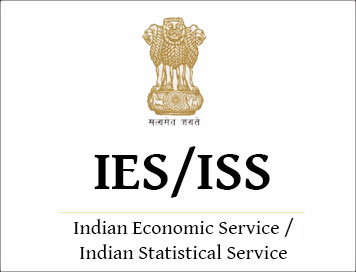
Strategy for Indian Economic Service (IES) Examination
ISS and IES are Central Government Services, which are involved, in economic planning and analysis through state boards, planning commission and other government owned bodies in the country. Out of several careers offered by the Government Sector, it is an attractive opening to post-graduates in Economics. Selected candidates are placed in the Planning Commission, Labour Bureau, Central Electricity Authority, Economic Advisers to many ministries, Forward Market Commission, Tariff Commission, Planning Board, Tariff Commission National sample survey and other allied offices where specialists in Economics are required. An illustrious yet highly specialized service where the appointees are giving critical inputs in the policy making of the financial and economic affairs, and, additionally, they can go on deputations to different agencies of United Nations. .
Cadre Strength
500 approx. with approximately minimum 60 vacancies are lying vacant. Every year vacancies available are 6-10 based on expenditure commission norms that maximum vacancies to be filled in any year should not exceed the 2% of actual cadre strength. Because of this the requirements are put together and nowadays vacancies for two years are jointly advertised by UPSC to manage the logistic part of conducting the exam in an efficient manner.
Time Horizon of Planning
At least Three (3) years so that any person can appear for this exam for minimum twice to give their best. Approximately 4000-4500 candidates are taking up this exam because of the eligibility of a Masters in Economics being prescribed.
The Cadre Management
It is done by the Ministry of Finance. A person starts as Assistant Director and can go upto Additional Secretary level in the Government of India . Many RBI governors and other board chairman also have come from this service. Many IES officers also give vitals inputs as economic administrators in Planning Commission,
Details
2003 Exam: For interview, the general criteria is to call 2.5 times the number of vacancies available. Like, for 2003 exam for which interview was being conducted in last week of September-October and result was declared on 13th October, 2004 in which Thirteen (13) people were being finally selected. The break-up was as follows:
1. Reserved: 07
2.Others: 06
In 2001/02: the vacancies were 09-10.
Written Examination
The subjects of written examination, the marks allotted to each subject will be as under where allocation has been changed since the year 2000 with addition of a new paper i.e. General Economics-I with 200 marks and at the same time, the weight age was decreased for General Studies and General English from 150 marks each to 100 marks each . Also for interview, the weightage has been decreased from 250 to 200 marks. Now further changes are going to happen as already a committee under Dr. Vijay Kelkar has given a report on revamping the selection and training and cadre management of this service.
| Sl. No. |
Subject |
Max. Marks |
| 1 |
General English |
100 |
| 2 |
General Studies |
100 |
| 3 |
General Economics- I |
200 |
| 4 |
General Economics- II |
200 |
| 5 |
General Economics-III |
200 |
| 6 |
Indian Economics |
200 |
| 7 |
Interview |
200 |
Strategy for English:
It may be observed that General English is a full-fledged paper and unlike in the Civil Services Examination, where language paper is just qualifying in nature and the marks obtained are not counted in the final merit, the marks obtained in General English Paper in this examination form part of the total score of the candidate. Hence, knowledge of English Language plays an important role in this examination. The General English Paper includes an essay, precis and other descriptive questions to judge the candidates' comprehension of English Language. Candidates with good base of English Language can hope to do well. Essay, particularly, is very important, as it is an instrument for judging not only the command over the language but also the depth of knowledge and expression of the candidate on a given topical essay. The good score is 55-65 depending on the proficiency level of a candidate.